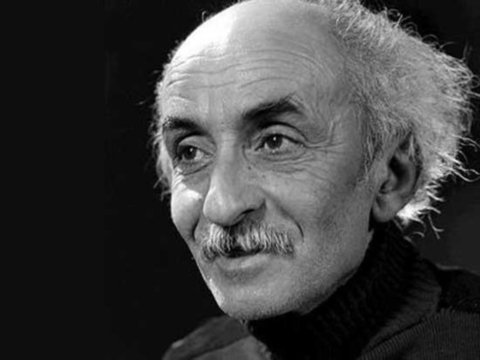Iran (IMNA) - Breaking free from the confines of classical poetry, Yushij fearlessly ushered in a new era of literary innovation and artistic freedom. By daringly reimagining poetic form and subject matter, he challenged the conventions of his time and paved the way for a new wave of literary expression.
During an era dominated by strict, centuries-old conventions, Nima Yushij emerged as a trailblazer, pushing boundaries with groundbreaking ideas and an experimental style. Embracing the spirit of social transformation and cultural reform, his poetry embodied the fervor and aspirations of a generation hungry for change.
Yushij's poetic journey began in his early years when he became captivated by the power of words to vividly depict scenes and evoke profound emotions.
His first notable work was the epic poem "The Pale Story." Later, he penned "Afsaneh" (Myth), a composition considered the cornerstone of modern Persian poetry. With its raw emotions, daring themes, and revolutionary language, this masterpiece defied traditional structures and propelled Persian poetry into uncharted territories. Its success not only solidified Yushij's reputation as a visionary poet but also inspired countless others to follow in his footsteps.
Furthermore, Yushij's poetry beautifully expressed his deep connection with nature, reflecting the voice of a generation grappling with the complexities of the modern world. Through evocative imagery and vivid metaphors, he breathed new life into Persian poetry, captivating audiences and resonating with the emotions and experiences of his contemporaries.
Nima Yushij's impact on Persian poetry was profound, extending far beyond his own compelling verses. He founded the "New Poetry" movement, which encouraged aspiring poets to explore innovative themes, experiment with forms, and embrace change. Through his relentless pursuit of artistic freedom, he paved the way for a wave of diverse voices and perspectives in Iranian literature.
This literary movement marked a significant departure from classical poetry, embracing a more experimental and modern approach. Yushij advocated for Persian poetry to develop its own unique voice, rooted in Iran's rich cultural heritage while fearlessly venturing into new paths and ideas.
Yushij's poetry served not only as a means of self-expression but also as a powerful instrument for social change, reflecting the turmoil that Iran experienced in the early 20th century. By merging ancient Persian poetry with world poetry, he restored the prominence of Persian poetry within the global poetic community. His poetry aimed to incorporate elements of music and speech, departing from the meticulous rhyme schemes of ancient prosody.
The themes explored in Nima Yushij's poetry were diverse and nuanced, encompassing love, nature, social justice, and political upheavals. His words resonated deeply with the Iranian people, capturing the essence of their struggles, dreams, and aspirations. Through his poetry, he provided solace, hope, and a profound understanding of the human experience.
Yushij was heavily influenced by French Symbolist poets and became the first Iranian poet to introduce Western-style free verse. He juxtaposed his own "Blank Verse" style against the modernist ideals of French poet Arthur Rimbaud, who advocated for rhyme and meter. In harmony with Rimbaud's revolutionary thoughts, Yushij demanded complete freedom in poetry to present his own unique styles.
Nima Yushij revolutionized Iranians' literary preferences and expanded their command of colloquial language through the incorporation of local words. By eliminating mundane and repetitive phrases and idioms, he achieved a mastery of expressing contemporary human emotions, anxieties, and restlessness that were previously unattainable in traditional Persian poetry.
Renowned as one of the luminaries of Persian folk poetry, Yushij's literary brilliance endures to this day. His distinctive approach to poetry and language continues to shape the work of modern Persian poets and scholars, as they strive for literary excellence.
The impact of Nima Yushij on Persian literature cannot be overstated. His innovative utilization of language, rhythm, and imagery sparked a literary revolution, inspiring numerous poets and writers to embrace their own unique voices and challenge societal conventions. His profound and thought-provoking poetry is still studied and revered, offering timeless lessons and deep insights into the human experience.


Your Comment